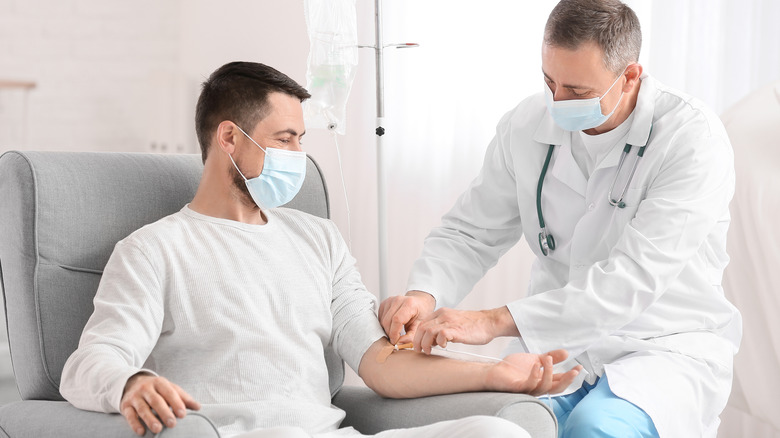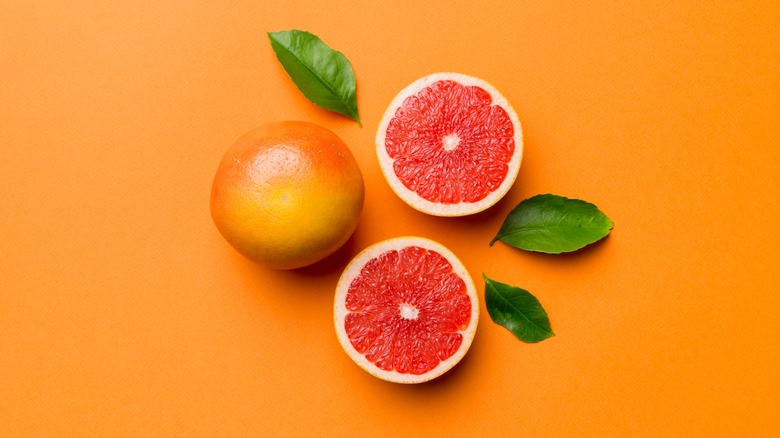Why You Should Avoid Grapefruit And Grapefruit Juice When Going Through Chemotherapy
Chemotherapy drugs work by attacking cancer cells at varying stages in their life cycles (via Medical News Today). The drugs prevent the cells from rapidly dividing and reproducing, which is how cancer grows. While this process can cause severe side effects, it's often recommended because the benefits outweigh the risks, and unwanted symptoms usually go away after the treatment is finished. Chemotherapy side effects can include nausea, vomiting, hair loss, fatigue, hearing impairment, infections, bleeding problems, anemia, inflamed mucous membranes, low libido, diarrhea, constipation, reduced cognitive function, and loss of appetite.
Chemotherapy can last for a specific amount of time or for as long as it works, but courses typically last for three to six months. It's usually given in cycles, with one- to four-week rest periods in between to allow the body to rest.
Grapefruit juice is a tangy alternative to orange juice in the morning, but it might come with a cost during cancer treatment. While it's a delicious fruit with lots of important vitamins and minerals, it also interacts with a number of common drugs, including chemotherapy drugs. So should you avoid grapefruit and grapefruit juice entirely when going through chemotherapy?
How grapefruit affects drug metabolism
Once medications enter your system, they're broken down by enzymes and leave the bloodstream, according to Cancer Treatment Centers of America. But grapefruit juice can slow this process, causing these drugs to build up to toxic levels in the bloodstream. Grapefruit contains furanocoumarins, chemical compounds that prevent enzymes from properly metabolizing medications. These can actually block the breakdown of certain chemotherapy drugs, such as vincristine and docetaxel. If there's a high concentration of any drug in the body, it could put patients at risk for muscle damage, heart arrhythmia, or other conditions.
There are actually at least 85 known drug interactions with grapefruit and grapefruit juice, making it the most familiar example of food-drug interaction. Grapefruit should also be avoided if you're taking statins for high cholesterol, calcium channel blockers for high blood pressure, some anti-anxiety medications, corticosteroids for ulcerative colitis or Crohn's disease, and some antihistamines. It might be best to avoid grapefruit and grapefruit juice if you're taking any of these drugs or if you're going through chemotherapy. Talk to your doctor about how your prescription drugs may be interacting with certain foods or other medications.


